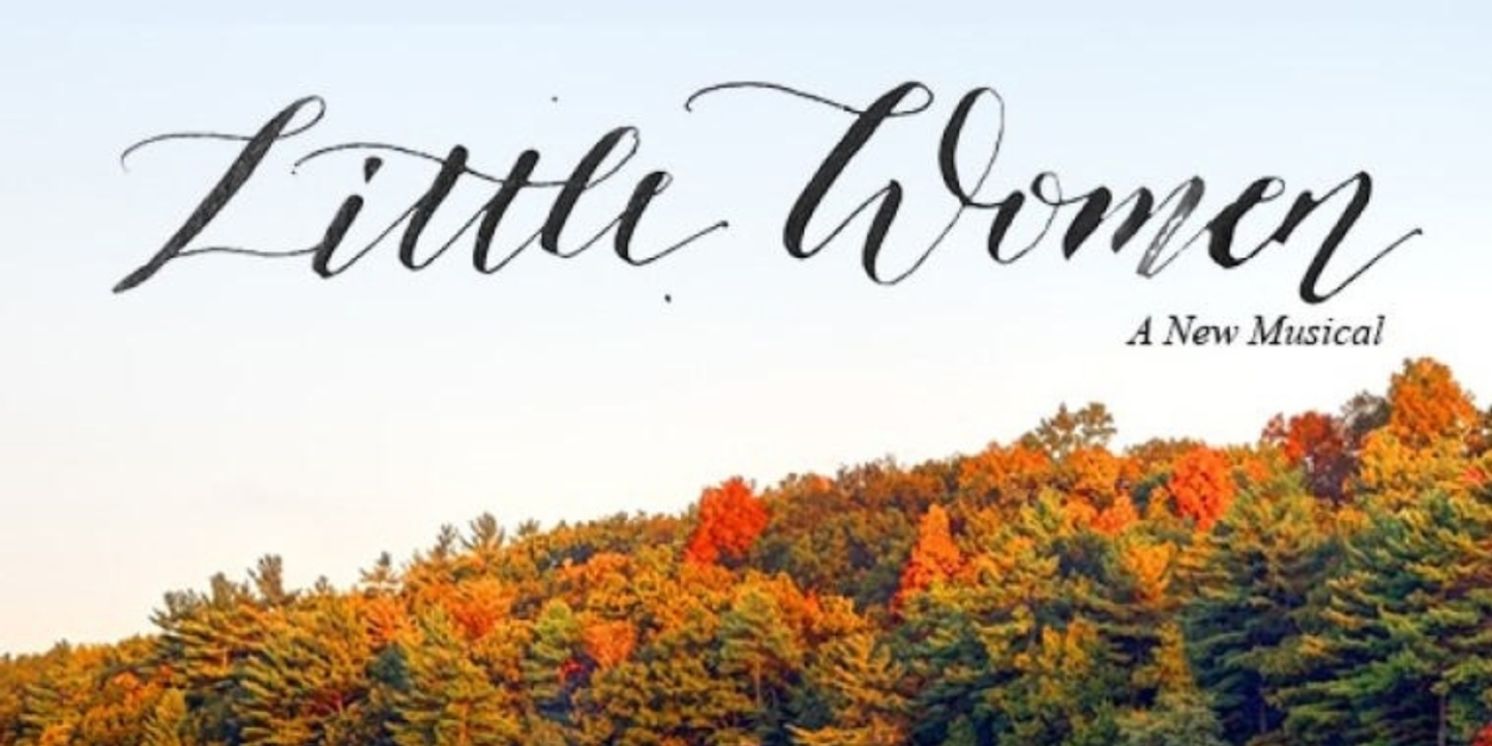Review: LITTLE WOMEN, A NEW MUSICAL at The Knitting Factory
No, not that one. But it's just like that one.

Alcott's classic novel Little Women is a lot of things to a lot of people. It has been the basis for a number of beloved adaptations, a formative read in childhood, an exploration of queerness, and sometimes even pointed to as the founding text of the young adult genre. Despite its popularity and my own love of the story and its characters (I was raised in Massachusetts and have personally dined with the March family mural in the Concord Dunkin' Donuts), I don't know that I could tell you a single famous quote from the book. Apart from the lines where Marmee refers to her "little women", I don't think anyone really could. I don't know that any successful adaptation has been able to pull much text directly from the story. Film versions don't open with a wistful recitation of its opening lines and no trivia quiz will ask you for its closing words.
The language is plain and straightforward. At the time the novel was published, Sigmund Freud was just a little boy sorting out dreams about his mother, so the idea of the subconscious had yet to take America by storm. Thus, the characters say what they mean and (for the most part) mean what they say. At face value, the way the characters interact is cloying and almost irritatingly agreeable. Yet, I remember my sister (who immediately connected with Jo March upon first read) becoming inconsolable when Amy burns her writing out of jealousy. I remember my own profound sadness when Meg succumbs to pressure and is criticized for forgoing her modesty at a party. There are moments of intensely human beauty in the story, even if there aren't quotable moments to illustrate them.
How does this affect Little Women's viability as source material for a mainstream piece of American musical theatre? Formulaically speaking, quotes are a great place to start your musical adaptation. Remember when Tesori and Kron took a single frame from a graphic novel and gave us "Ring of Keys"? Or how Lerner and Loewe read Shaw's "I've grown accustomed to them rather" and wove the haunting "I've grown accustomed to the trace/ of something in the air/ accustomed to her face"? I won't say that Little Women can't be adapted into a musical, but I will say that the Broadway production by Howland, Dickstein, and Knee and this concert version by Dan Redfeld, Christina Harding, and John Koladziej share many of the same shortcomings.
To start, there is almost a one-to-one correspondent for the songs in each version. "Journey" has potential as a great audition song, but I wouldn't put it up against "Astonishing". The music takes as a jumping off point the personalities and varied interests of each of the sisters, and we hear trite lyrics explain to us Jo's love of writing and Amy's love of painting, but somewhere amidst cutesy rhymes about daisies, butterflies, and taking flight, we lose the distinct dignity of each of these characters. Laurie and Aunt March sing a duet which literally pits Laurie's claim that life should be fun against Aunt March's claim that wealth is important. No characterization beyond those statements, no deeper ideologies to explore, just a sharp binary of fun versus money. This epitomizes a score which reduces iconic characters to their most basic traits.
As if reducing each sister to her respective interest were not enough, we are then burdened with songs sung by men. In Little Women. No offense, but you picked rare source material from the nineteenth century that truly unearths the complex relationships between young women and you want to treat it like a series of romances? Why not just adapt any other book from the nineteenth century?
I think by adapting Little Women in 2022 or after, we must grapple with and acknowledge two things. First off, love it or hate it, Greta Gerwig gave us an adaptation of the book that is not treacly or sugarcoated, and set the trajectory for how we should perceive of the male presence in Little Women. The women are the story. The men are there because in order to be a woman in nineteenth century America, men needed to be considered. Chalamet wasn't doing any monologues and I honestly couldn't tell you what Professor Bhaer looks like in it. Second, whether you like it or not, Peyton Thomas' op ed about Alcott's queerness transforms the way Little Women sits in the canon. The fact that the author engaged in noted acts of gender expansive thought means that (sorry, Sutton) Jo March can never exist as solely a quirky tomboy ever again. Little Women was never just a story about four little girls who wanted respectively to write, paint, play piano, and get married and treating the sisters as H*gwarts houses doesn't do the narrative any justice. Little Women is about grappling with and coming to understand a world that you do not control. It's 2023 and I'm ready to see that musical adaptation.
In this concert version, the orchestrations were bolstering to actors and audience alike and Redfeld clearly belongs at the keys-- his playing and conducting oozed with fervor. I was expecting something radically different from the 2005 Broadway musical and I can't say this was it, but I imagine these songs will appear in repertoire for college auditions one day and I don't think there's anything wrong with that.
Reader Reviews
Videos

